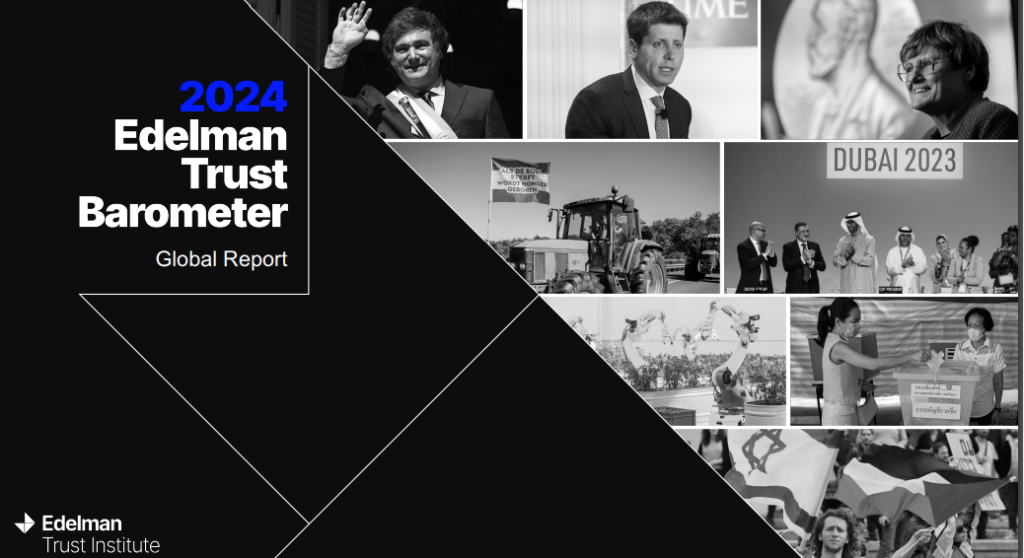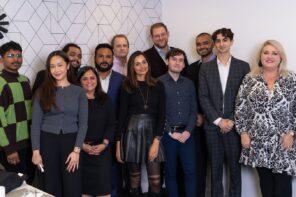
Monday March 11, 2024
Rebuilding Trust in an Age of Innovation
At this year’s World Economic Forum (WEF) in Davos, the theme of “Rebuilding Trust” took centre stage. It was a call to revitalise confidence in our future, foster societal harmony, and fortify international bonds. This focus feels particularly relevant following the disruptive events of the AI-driven year of 2023, which left many feeling overwhelmed by the rapid pace of innovation.
In 2024, as up to 40 countries gear up for leadership transitions, embracing innovation becomes imperative for societal progress. While the pivotal role of scientists in driving innovation is widely acknowledged, there’s a growing concern about the undue influence of politics on scientific endeavours. This perception undermines trust in institutions entrusted with steering us towards a brighter tomorrow.
Innovation permeates various aspects of society, from advancements in gene-based medicine to artificial intelligence. Yet, when innovation is mismanaged, it can exacerbate feelings of disenfranchisement and distrust in the system.
Edelman, the world’s largest PR firm, recently conducted a comprehensive survey involving over 32,000 individuals across 28 countries. Their report, titled “Innovation in Peril: A Collision of Trust, Innovation, and Politics,” explores the intricate relationship between trust, innovation, and the global political landscape.
Here are some key findings from the report:
- Overall trust is declining: The global Trust Index, which measures trust in institutions like government, business, media, and NGOs, slipped further in 2024, with only 55% of people expressing general trust. The UK ranks among the least trusting countries according to the Trust Index (39), with no other G7 countries displaying high trust.
- Developed vs. developing nations: The report highlights a significant disparity in trust between developed and developing countries. Developing nations generally demonstrate higher levels of trust, with an average Trust Index of 63% compared to 49% in developed nations.
- Public anxieties about innovation: While people see scientists as crucial for advancing innovation, there’s concern about political influence on science and the potential negative societal impacts of innovation.
- Business holds the edge: Businesses are relatively more trusted (60%) to ensure safe, accessible, and understandable innovations compared to other institutions. Businesses, according to the Trust Barometer, must collaborate with government entities to build trust in technology-led changes. Over the last decade, there has been a 15-point increase (45 percent to 60 percent) in people expressing trust in businesses partnering with the government.
- Media struggles with trust: The media industry faces a significant trust deficit, with active distrust rising across many countries. The government is distrusted in 17 of the 28 countries surveyed, and the media remains the least trusted institution globally.
- Socioeconomic disparity: People with lower income levels tend to exhibit lower levels of trust across all institutions compared to those with higher incomes.
Driving Innovation with Responsible Communication.
Driving innovation without responsibility risks eroding confidence, empowering malicious actors, and causing substantial harm. Charting a path that includes both innovation and responsibility is paramount.
Here’s how effective communication can contribute to building trust:
- Addressing public concerns about innovation: Highlighting its potential benefits while openly acknowledging and discussing associated risks can alleviate anxieties. Transparently communicating the responsible development and use of technology is essential for fostering trust.
- Bridging the gap between science and the public: Clear, accessible, and accurate communication that demystifies scientific advancements and addresses concerns is vital. Collaborating with scientists and experts to craft credible narratives is key.
- Rebuilding trust in organisations: Emphasizing authenticity, transparency, and accountability in communication can help businesses and media regain public trust. Demonstrating a commitment to ethical practices and social responsibility is essential.
- Tackling socioeconomic disparities: Recognising and addressing the trust gap among different socioeconomic groups is crucial. Tailoring communication strategies to diverse audiences and ensuring information accessibility are vital steps. Initiatives aimed at tackling systemic inequalities can further bolster trust.
- Combatting misinformation & disinformation: Proactively countering misinformation and enhancing media literacy among the public are essential tasks.
By adapting to these evolving dynamics and proactively addressing the concerns highlighted in the Edelman Trust Report, the PR and communications industry can play a valuable role in rebuilding trust in today’s complex and challenging world.
Curzon PR is a London-based PR firm working with clients globally. If you have any questions, please feel free to contact our Business Development Team bd@curzonpr.com







Follow us